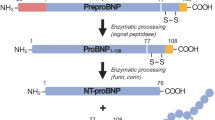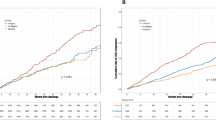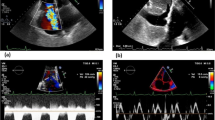Abstract
Objective
The aims of this study were to explore the association between serum level of carbohydrate antigen 125 (CA125) and coronary heart disease (CHD), and to evaluate its role in the short-term prognosis of CHD patients.
Methods
A total of 150 patients were enrolled in the study and divided into an acute coronary syndrome (ACS) group (n=40), a stable CHD group (n=64), and a control group (n=46) according to clinical presentation and angiographic results. Fasting blood samples were collected at two time points, on admission and on the fifth day after hospitalization for the measurement of serum CA125 and other biomarkers.
Results
Serum CA125 levels in both CHD subgroups were significantly higher than the control group on admission (p < 0.01 for the ACS group and p < 0.05 for the stable CHD group). The differences remained significant on the fifth day after hospitalization (both p < 0.05), and the CA125 levels in the ACS group were higher than in the stable CHD group on the fifth day (p < 0.05). The CA125 levels were positively correlated with pro-brain natriuretic peptide (pro-BNP), left ventricular end diastolic diameter (LVEDD), left ventricular end systolic diameter (LVESD), and negatively correlated with left ventricular ejection fraction (LVEF). Compared with the other patients, serum CA125 levels on admission were significantly elevated in the patients who suffered from heart failure events during a 3-month follow-up (p = 0.037). The CA125 level on the fifth day of hospitalization in these patients stayed at a significantly higher level than the other patients (p = 0.002).
Conclusions
The serum CA125 levels were significantly related with cardiac function in CHD patients. Serum CA125 levels that remain elevated after CHD onset could be helpful for predicting the short-term risk of heart failure events in CHD patients.
Zusammenfassung
Ziel
Ziel der vorliegenden Studie war es, den Zusammenhang zwischen dem Serumspiegel des Kohlenhydratantigens 125 (CA-125) und der koronaren Herzkrankheit (KHK) zu ermitteln und seine Bedeutung für die Kurzzeitprognose von KHK-Patienten zu untersuchen.
Methoden
In die Studie wurden 150 Patienten aufgenommen und in eine Gruppe mit akutem Koronarsyndrom (ACS, n=40), eine Gruppe mit stabiler KHK (n=64) und eine Kontrollgruppe (n=46) unterteilt, je nach klinischen Symptomen und Angiographiebefunden. Zu 2 Zeitpunkten erfolgte eine Nüchternblutabnahme für die Messung von CA-125 im Serum und anderer Biomarker: bei Aufnahme und am 5. Tag nach stationärer Aufnahme.
Ergebnisse
Bei Aufnahme war in den beiden KHK-Untergruppen der Serum-CA-125-Wert signifikant höher als in der Kontrollgruppe (p < 0,01 für die ACS-Gruppe und p < 0,05 für die Gruppe mit stabiler KHK). Die Unterschiede blieben auch am 5. Tag nach stationärer Aufnahme signifikant (beide p < 0,05), dabei war der CA-125-Wert in der ACS-Gruppe am 5. Tag nach Aufnahme höher als in der Gruppe mit stabiler KHK (p < 0,05). Es bestand eine positive Korrelation der CA-125-Werte mit pro-BNP (“brain natriuretic peptide”), linksventrikulärem enddiastolischem Durchmesser (LVEDD) sowie linksventrikulärem endsystolischem Durchmesser (LVESD) und eine negative Korrelation mit der linksventrikulären Ejektionsfraktion (LVEF). Im Vergleich zu den anderen Patienten waren für Patienten, bei denen sich während der Nachbeobachtung über 3 Monate eine Herzinsuffizienz entwickelte, die Serumspiegel für CA-125 bei Aufnahme signifikant höher (p = 0,037). Der CA-125-Wert am 5. Tag nach stationärer Aufnahme blieb bei diesen Patienten signifikant höher als bei den anderen Patienten (p = 0,002).
Schlussfolgerung
Die Serumwerte für CA-125 standen in einem signifikanten Zusammenhang mit der Herzfunktion bei KHK-Patienten. Bleibt das CA-125 im Serum nach Beginn der KHK erhöht, so könnte das zur Abschätzung des Kurzzeitrisikos einer Herzinsuffizienz bei KHK-Patienten von Nutzen sein.
Similar content being viewed by others
References
Bates SE (1991) Clinical applications of serum tumor markers. Ann Intern Med 115:623–628
Van der Burg ME, Lammes FB, Verwei JJ (1992) CA 125 in ovarian cancer. Neth J Med 40:36–51
Topalak O, Saygili U, Soyturk M et al (2002) Serum, pleural effusion, and ascites CA 125 levels in ovarian cancer and non-ovarian benign and malignant diseases: a comparative study. Gynecol Oncol 85:108–113
Miralles C, Orea M, Espana P et al (2003) Cancer antigen 125 associated with multiple benign and malignant pathologies. Ann Surg Oncol 10:150–154
Sjovall K, Nilsson B, Einhorn N (2002) The significance of serum CA 125 elevation in malignant and nonmalignant diseases. Gynecol Oncol 85:175–178
Nagele H, Bahlo M, Klapdor R et al (1999) CA125 and its relation to cardiac function. Am Heart J 137:1044–1049
D’Aloia A, Faggiano P, Aurigemma G et al (2003) Serum levels of carbohydrate antigen 125 in patients with chronic heart failure: relation to clinical severity, hemodynamic and Doppler echocardiographic abnormalities and short-term prognosis. Am Coll Cardiol 41:1805–1811
Kouris NT, Kontogianni DD, Papoulia EP et al (2006) Clinical and prognostic value of elevated CA125 levels in patients with congestive heart failure. Hellenic J Cardiol 47:269–274
Núñez J, Núñez E, Consuegra L et al (2007) Carbohydrate antigen 125: an emerging prognostic risk factor in acute heart failure? Heart 93:716–721
Núñez J, Sanchis J, Bodi V et al (2010) Improvement in risk stratification with the combination of the tumour marker antigen carbohydrate 125 and brain natriuretic peptide in patients with acute heart failure. Eur Heart J 31:1752–1763
Varol E, Ozaydin M, Dogan A, Kosar F (2005) Tumour marker levels in patients with chronic heart failure. Eur J Heart Fail 7:840–843
Nagele H, Bahlo M, Klapdor R, Rodiger W (1999) Fluctuations of tumor markers in heart failure patients pre and post heart transplantation. Anticancer Res 19:2531–2534
Kouris NT, Zacharos ID, Kontogianni DD et al (2005) The significance of CA 125 levels in patients with chronic congestive heart failure. Correlation with clinical and echocardiographic parameters. Eur J Heart Fail 7:199–203
Varol E, Ozaydin M, Dogan A, Kosar F (2005) Tumour marker levels in patients with chronic heart failure. Eur J Heart Fail 7:840–843
Hülsmann M, Berger R, Mörtl D et al (2005) Incidence of normal values of natriuretic peptides in patients with chronic heart failure and impact on survival: a direct comparison of N-terminal atrial natriuretic peptide, N-terminal brain natriuretic peptide and brain natriuretic peptide. Eur J Heart Fail 7:552–556
Masson S, Latini R, Anand IS et al (2006) Direct comparison of B-type natriuretic peptide (BNP) and amino-terminal proBNP in a large population of patients with chronic and symptomatic heart failure: the Valsartan Heart Failure (Val-HeFT) data. Clin Chem 52:1528–1538
Aspromonte N, Valle R, Di Fusco SA et al (2011) Prognostic value of B-type natriuretic peptide in patients with left bundle-branch block admitted for acute heart failure. Eur J Intern Med 22:e152–e154
Faggiano P, D’Aloia A, Brentana L et al (2005) Serum levels of different tumour markers in patients with chronic heart failure. Eur J Heart Fail 7:57–61
Omland T, Persson A, Ng L et al (2002) N-terminal pro-B-type natriuretic peptide and long-term mortality in acute coronary syndromes. Circulation 106:2913–2918
Seo T, Ikeda Y, Onaka H et al (1993) Usefulness of serum CA125 measurement for monitoring pericardial effusion. Jpn Circ J 57:489–494
Duman C, Ercan E, Tengiz I et al (2003) Elevated serum CA125 levels in mitral stenotic patients with heart failure. Cardiology 100:7–10
Acknowledgments
This work was supported by the National Natural Science Foundation of China (81370331), Shanghai Municipal Science and Technology Commission (12140903402) and Young Medical Talents Training Program of Shanghai Municipal Health Bureau (XYQ2011011) to Z.Y. Chen, and Shanghai Municipal Science and Technology Commission (10JC1410502) to G.P. Lu.
Compliance with ethical guidelines
Conflict of interest. X. Rong, Z. Yunke, L. Guoping, and C. Zhenyue state that there are no conflicts of interest. All studies on humans described in the present manuscript were carried out with the approval of the responsible ethics committee and in accordance with national law and the Helsinki Declaration of 1975 (in its current, revised form). Informed consent was obtained from all patients included in studies.
Author information
Authors and Affiliations
Corresponding author
Additional information
X. Rong and Z. Yunke contributed equally to this work.
Rights and permissions
About this article
Cite this article
Rong, X., Yunke, Z., Guoping, L. et al. Clinical and prognostic value of elevated CA125 levels in patients with coronary heart disease. Herz 40, 690–694 (2015). https://doi.org/10.1007/s00059-014-4109-y
Received:
Revised:
Accepted:
Published:
Issue Date:
DOI: https://doi.org/10.1007/s00059-014-4109-y




